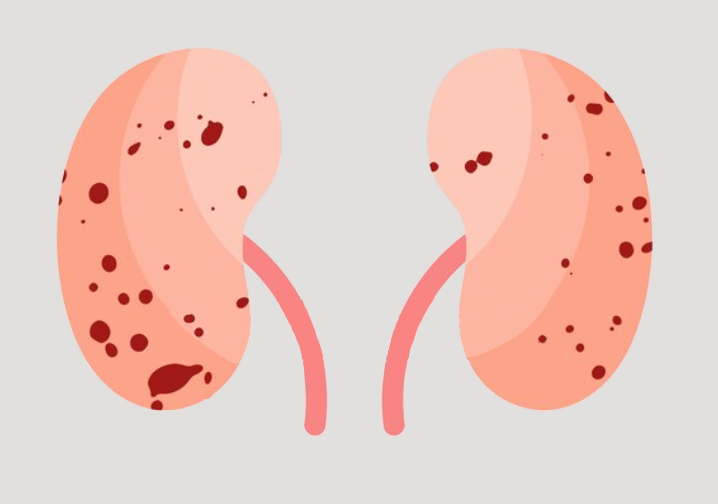 Glomerulonephritis, referred to as nephritis, is a group of immune-mediated and involved in inflammatory mediators (such as complement, cytokines, reactive oxygen species, etc.) that eventually lead to inflammatory changes in the inherent renal tissues and cause varying degrees of renal dysfunction diseases. It is not a single disease, but a group of diseases caused by multiple etiologies and pathogenesis, with different pathological types, and often overlapping clinical manifestations. The patient’s glomerular morphology and (or) function is damaged, with the following characteristics: glomerular changes in the permeability of proteins and cells, impaired kidney ability to regulate water, electrolytes, acid-base balance and blood pressure, and glomerular filtration over functional impairment. Patients often have symptoms such as hematuria, proteinuria, edema and hypertension.
Glomerulonephritis, referred to as nephritis, is a group of immune-mediated and involved in inflammatory mediators (such as complement, cytokines, reactive oxygen species, etc.) that eventually lead to inflammatory changes in the inherent renal tissues and cause varying degrees of renal dysfunction diseases. It is not a single disease, but a group of diseases caused by multiple etiologies and pathogenesis, with different pathological types, and often overlapping clinical manifestations. The patient’s glomerular morphology and (or) function is damaged, with the following characteristics: glomerular changes in the permeability of proteins and cells, impaired kidney ability to regulate water, electrolytes, acid-base balance and blood pressure, and glomerular filtration over functional impairment. Patients often have symptoms such as hematuria, proteinuria, edema and hypertension.
The diagnosis methods of nephritis are as follows:
Creative Biogene's products are mainly targeted at the autoantibody detection to diagnose nephritis, and use enzyme-linked immunoassay to qualitatively and quantitatively determine the markers in human serum or plasma. Our product can quickly detect autoantibodies produced when the occurrence of nephritis, and is one of the effective methods for nephritis detection. Our detection kits will provide you with all the necessary reagents, stable and reliable performance, short detection time, high sensitivity, specificity and reproducibility.
Creative Biogene's skilled scientists have experience in developing outstanding products in the field of nephritis diagnosis. We will uphold the belief of pursuing high quality and the spirit of professionalism to provide you with our optimal products. We look forward to working with you for your cooperation.
Please contact us for more details.
Reference
| Cat# | Product Name | Product Type | Inquiry |
|---|---|---|---|
| C0511T | ENA Combi ELISA | Test kit | Inquiry |
| C0512T | ENA Screen ELISA | Test kit | Inquiry |
| C0513T | ENA-6 Profile ELISA | Test kit | Inquiry |
| C0542T | MPO-Ab (p-ANCA) ELISA | Test kit | Inquiry |
| C0547T | ANCA Profile ELISA | Test kit | Inquiry |
| C0548T | ANCA Screen ELISA | Test kit | Inquiry |
| C0549T | ANCA-C (PR3) ELISA | Test kit | Inquiry |
| C0550T | ANCA-P (MPO) ELISA | Test kit | Inquiry |
| C0552T | GBM-Ab ELISA | Test kit | Inquiry |
| C0554T | Rhinovirus/Enterovirus Real-Time PCR Test | Test kit | Inquiry |
Copyright © 2026 Creative Biogene. All rights reserved.